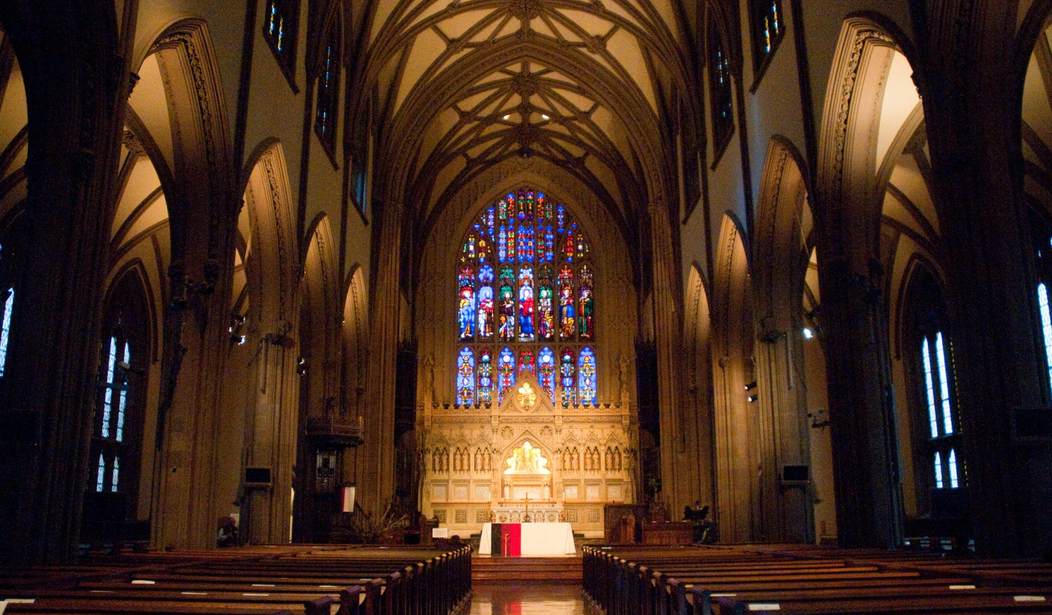There has been a shakeup in the global Anglican Communion. On January 15, the senior bishops of the 38 Anglican Provinces across the world—known as Primates of the Anglican Church—voted to suspend the United States-based Episcopal Church for its change in the doctrine of marriage. The Episcopal Church has remained obstinate, saying it will continue to support gay marriage.
The Primates and the official head of the Anglican Communion, Archbishop of Canterbury Justin Welby, presented the suspension as a victory for unity. The Anglican Church did not sever ties with the Episcopal Church (TEC), but merely reprimanded them and attempted to limit their actions for the next three years.
Marriage Differences Threaten Church Unity
In July 2015, Episcopal bishops authorized their clergy to perform so-called same-sex marriages. The bishops granted clergy the right to refuse to perform a same-sex marriage with no penalty, however, and individual bishops reserved the right to refuse to allow the services in the churches they oversee.
Shortly thereafter, Archbishop Welby released a statement expressing “deep concern” over the votes. Welby urged the bishops to pull back, warning that “the decision will cause distress for some and have ramifications for the Anglican Communion as a whole, as well as for its ecumenical and interfaith relationships.” That warning turned out to be accurate.
In a weeklong meeting between January 11 and January 15, the Primates of the Anglican Communion decided to restrict the Episcopal Church. The official document reprimanded TEC, saying that the change in the doctrine of marriage “has caused further deep pain throughout our Communion.” Indeed, the Primates said this threatened the unity of the Anglican Communion, but they ultimately decided not to split.
The Primates agreed that “the traditional doctrine of the church in view of the teaching of Scripture, holds marriage as between a man and a woman in faithful, lifelong union.” As such, they could not agree with TEC and decided that if TEC was to stay in the Anglican Communion, there must be a price to pay for their disagreement on this issue.
In his statement, Welby insisted that “it really was possible that we would reach a decision to walk apart—in effect, to split the Anglican Communion.” The leaders decided not to split the church, but to discipline the Episcopal Church for a period of three years.
It is our unanimous desire to walk together. However given the seriousness of these matters we formally acknowledge this distance by requiring that for a period of three years The Episcopal Church no longer represent us on ecumenical and interfaith bodies, should not be appointed or elected to an internal standing committee and that while participating in the internal bodies of the Anglican Communion, they will not take part in decision making on any issues pertaining to doctrine or polity.
The Primates also asked Welby to appoint a “Task Group to maintain conversation among ourselves with the intention of restoration of relationship.”
Backlash
It will come as no surprise that this decision inspired backlash from the supporters of gay marriage and the Episcopal Church. Michael Curry, the Episcopal Church’s newly elected first African American presiding bishop responded by saying this decision “conjures up” memories of slavery.
I stand before you as a descendant of African slaves, stolen from their native land, enslaved in bitter bondage, and then even after emancipation, segregated and excluded in church and society. And this conjures that up again, and brings pain.
Another response—no less heated, but more grounded in logical argument—claimed that the Primates lacked the authority to suspend the Episcopal Church. New Zealand Anglican Priest Bosco Peters argues that the Primates were not “unanimous,” partially because the Primate of Uganda, Archbishop Stanley Ntagali, left the meeting when his resolution to exclude the Episcopal Church USA and the Anglican Church of Canada “until they repented” was ignored.
After quoting the Anglican Primates’ statement defining marriage, Peters angrily added “Don’t mention polygamy, divorce-and-remarriage for heterosexuals, sequential polygamy—this was never about tradition, scripture, or marriage—let’s be plainly honest, it was about LGBT people.”
Despite Peters’ vitriol, he might have been right about authority. His criticisms seem born out in the difference between the authoritative tone of the Primates’ original message (released January 15) and Archbishop Welby’s later statement about the events (released Thursday, January 21).
In the original Primates message, the bishops say (emphasis is from Peters’ quotes), “we formally acknowledge … by REQUIRING that … SHOULD not be appointed … they WILL not…” In Welby’s statement, however, he notes that “we ASKED that TEC … we also ASKED that…”
The Primates Defend the Rights of Gay People
Nevertheless, Peters’ and Curry’s attacks fail on one very salient point. Curry, in his reference to the legacy of racism, and Peters, in his declaration that the decision was not “about tradition, scripture, or marriage” hint at the argument that any such support for “traditional marriage” is really a smokescreen for prejudice against gay people. In doing so, they overlook just how accepting and supportive the Primates’ statement is toward gay people.
From the Primates’ communique:
The Primates condemned homophobic prejudice and violence and resolved to work together to offer pastoral care and loving service irrespective of sexual orientation. This conviction arises out of our discipleship in Jesus Christ. The Primates reaffirmed their rejection of criminal sanctions against same-sex attracted people.
The Primates recognise that the Christian church and within it the Anglican Communion have often acted in a way that has caused deep hurt. Where this has happened they express their profound sorrow and affirm again that God’s love for every human being is the same, regardless of their sexuality, and that the church should never by its actions give any other impression.
Archbishop Welby also emphasized this point. “I am deeply sorry for the pain that the church has caused LGBTI people in the past—and the present—and for the love that too often we have completely failed to show in may parts of the world, including England,” Welby wrote. “The worst thing about that is that it causes people to doubt that they are loved by God.”
These apologies should be stunning to anyone who thinks the emphasis on “traditional marriage” is grounded in prejudice against LGBT people. From these statements, it seems clear that when Welby and the other Primates insist on traditional, biblical marriage, they mean it. While the Bible condemns homosexuality in numerous passages, it also instructs Christians to love everyone, no exceptions. These dual commands have not been lost on Welby or the Primates.
A Long-Awaited Move
The split over homosexuality goes back over a decade, to the 2003 election of openly gay bishop Gene Robinson, and some authority figures in the Episcopal Church declaring that Jesus is not the only way to God. In 2009, four dioceses withdrew from the Episcopal Church and formed the Anglican Church in North America (ACNA).
Perhaps the best-known church in ACNA, the historic Falls Church Anglican church in Falls Church, Virginia (the city is named for the church, which counted George Washington in its congregation), voted (90 percent to 10 percent) to leave the Episcopal Church in 2006. In 2012, the church lost the use of its property to the remainder who decided to stay with TEC. The next year, it joined the ACNA.
The Rev. Dr. John Yates II, Rector of The Falls Church Anglican, lauded the decision to suspend The Episcopal Church, saying it was a long time coming. “After 15 years of indecision Canterbury has acknowledged the need to discipline TEC,” Yates wrote in an email statement to PJ Media. “We welcome this step.”
Yates added that the suspension “signifies the increasing recognition of the moral and spiritual leadership of the Anglican leaders of the Global South,” leaders in Africa and Southeast Asia who have held to more traditional doctrines of Anglicanism. Yates warned, however, that “the statement doesn’t necessarily reflect a clear understanding of just how determined TEC is to cling to their revisionist agenda, nor does it recognize the new thing God is doing in the ACNA. But as far as it goes it is quite encouraging.”









Join the conversation as a VIP Member